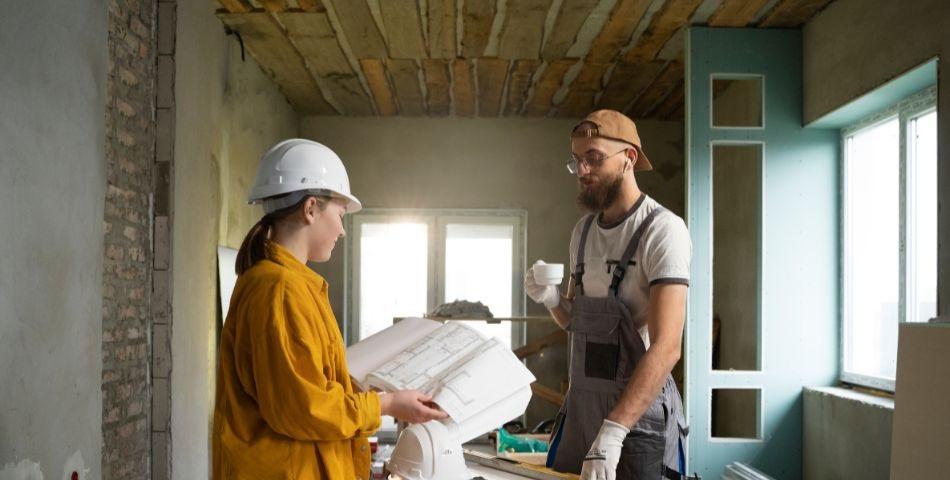Hiring a home improvement contractor is a crucial step in ensuring the success of your renovation project. However, the process can be daunting, and making the wrong choices can lead to costly mistakes and disappointing results. To find a qualified and reliable contractor who can deliver your vision, it’s essential to avoid common pitfalls. In this article, we will explore the most frequent mistakes made when hiring a home improvement contractor and provide valuable tips to help you make an informed decision.
1. Verify Licensing and Insurance
One of the most critical aspects of hiring a contractor is ensuring they are properly licensed and insured. A qualified contractor should possess both a contractor’s license and a business license. Additionally, they must carry general liability insurance and workers’ compensation coverage. Verifying these credentials protects you from potential liabilities and ensures you are working with a legitimate professional.
2. Check References and Previous Work
Never skip the step of checking references from past clients. Request a list of references from the contractor and follow up with them to get an idea of their work quality and professionalism. Additionally, ask to see examples of their previous work or a portfolio of completed projects. This firsthand information will give you valuable insights into the contractor’s capabilities and reliability.
3. Get a Detailed, Written Estimate
Obtaining a quote over the phone is a common mistake that can lead to misunderstandings and unexpected costs. Instead, have the contractor visit your home to assess the project thoroughly. A detailed, written estimate should outline the scope of work, materials, timelines, and costs involved. This document will serve as a crucial reference point throughout the project.
4. Consider Experience and Reputation, Not Just Price
While staying within your budget is essential, automatically hiring the cheapest contractor may not yield the best results. Take into account the contractor’s experience, reputation, and references when making your decision. A seasoned professional with a solid track record is more likely to deliver high-quality work and better customer service.
5. Have Backup Contractors in Mind
Always have backup contractors in mind in case your first choice falls through. Delays in the hiring process can set back your project’s timeline, but having a backup plan ensures that you can keep the project on track even if your initial choice doesn’t work out.
6. Conduct a Background Check
Before hiring a contractor, conduct some research to assess their reputation and any history of legal issues or complaints. Checking online reviews, ratings, and testimonials can provide valuable insights into the contractor’s reliability and trustworthiness.
7. Avoid Hiring Friends or Family Solely for Cost Savings
While the idea of hiring a friend or family member who offers a discount may be appealing, prioritize their skills and experience. It’s crucial to choose a contractor based on merit, ensuring they have the necessary expertise to meet your expectations.
8. Address Concerns and Communicate Effectively
If the contractor is not meeting your expectations, don’t try to fix the problem yourself. Instead, communicate your concerns openly and work together to find a solution. Effective communication is key to resolving any issues and ensuring a successful outcome.
9. Gather Multiple Recommendations and Do Your Research
Relying on just one recommendation may not give you a comprehensive view of the contractor’s capabilities. Gather multiple recommendations from various sources and conduct your own research to ensure you find a qualified and reliable contractor.
10. Obtain Necessary Permits
Always make sure to obtain the necessary permits for your home improvement project. A reputable contractor will prioritize compliance with local regulations and should guide you through the permitting process.
11. Be Transparent About Your Budget and Expectations
Being upfront with the contractor about your budget and expectations is crucial for a successful project. Clear communication ensures that both parties are on the same page and can help prevent misunderstandings or surprises later on.
Conclusion
Avoiding common mistakes when hiring a home improvement contractor is key to achieving a successful renovation project. By verifying licensing and insurance, checking references, obtaining written estimates, and prioritizing experience and reputation over price, you can find a qualified and reliable contractor to fulfill your home improvement dreams. Additionally, effective communication, conducting background checks, and being transparent about your budget and expectations will lead to a smoother and more satisfying renovation experience. By making informed decisions and staying proactive throughout the hiring process, you can confidently entrust your project to a skilled professional who will deliver exceptional results.


Comments are closed.